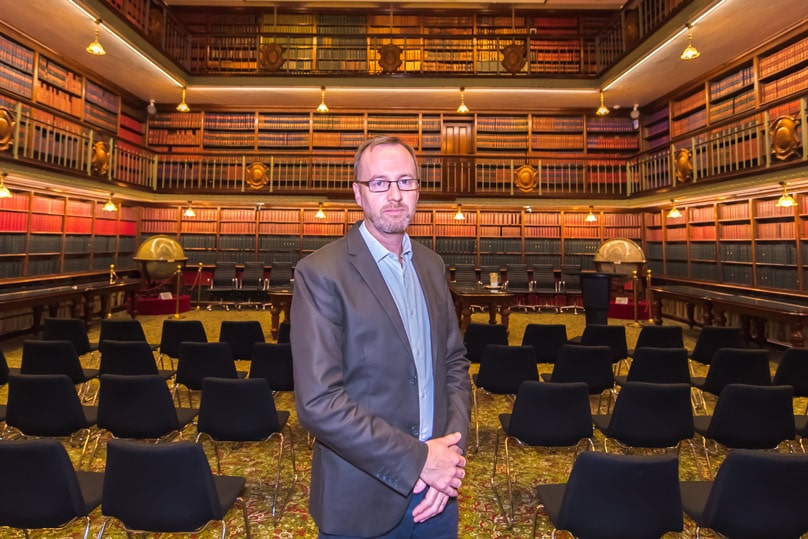
It’s the kind of savagery one might only expect to find in dystopian fiction.
But as the initially sceptical NSW MP David Shoebridge has learnt over the past several years, the commercial harvesting of organs in developing countries – principally from prisoners and persecuted minorities – and their purchase by Australians, is all too real.
Last year the Greens MLC was responsible for initiating a bill to criminalise the arranging, contracting and participation of any NSW resident in the overseas purchase and reception of organs.
He and a bevy of human rights advocates and community organisations, including members of the suppressed Chinese group Falun Dafa (practitioners of the spiritual practice, Falun Gong), recently celebrated the announcement of a federal parliamentary inquiry into organ trafficking.
It was a welcome development after years of advocacy and consultation – efforts which have steadily brought the reality of the issue to greater community consciousness.
“My initial response (when approached about the issue several years ago) was, ‘Well, a lot of this evidence seems to be contested; I’m not entirely satisfied that there is a problem,” Mr Shoebridge told The Catholic Weekly.
He then read the Canadian Parliament’s Kilgour-Matas Report into allegations of live organ harvesting in China, and heard first-hand accounts from numerous members of Falun Dafa about their “confronting” personal experiences.
And then there have been the consultations and conversations with human rights groups and medical practitioners in the years since.
Mr Shoebridge recounted a conversation with a transplant surgeon, who had been approached by a renal surgeon with “an ethical dilemma.” A patient had called saying they would not be attending dialysis, as an opportunity had arisen and “they were about to shoot her donor”.
“When you hear about that happening, it does send a sort of chill through you and does strengthen your resolve to do something,” Mr Shoebridge said.
After initial investigations into a possible legislative response, he realised the extent of the practice went well beyond China:
“The same issue about unethical trading or similar issues – perhaps to a different extent – were in countries as widespread as the Philippines, India, Central America, Egypt and the Middle East …
“Unless you have some kind of regime in place to show how society views this kind of conduct, then if your child, your partner, your sibling will die if they don’t have an organ, you’ll move heaven and earth to get it. And if there’s no clear statement from your society, ‘Well no you can’t do that – that’s grossly unethical and hopefully illegal’, people say, “Well, there’s nothing unlawful. I’m just going to do it.’”
To date, neither of the major parties has backed the proposal, although behind-the-scenes support from Labor and Coalition MPs has been significant.
Mr Shoebridge said that 12 major party MPs had registered to attend a briefing on the bill, which he and a human rights lawyer had offered to provide to members last year.
(Mr Shoebridge said that the evening before it was scheduled to take place, every MP received a letter from the Chinese Consulate, warning them that attendance would jeopardise the positive relationship between NSW and China.)
He is enthusiastic about the federal Inquiry into Human Organ Trafficking and Organ Transplant Tourism, which will be conducted by the Human Rights Sub-Committee of the Parliament’s Joint Standing Committee on Foreign Affairs, chaired by Kevin Andrews MP, but says there are still grounds for holding a state inquiry given the complexity of the issues to be considered by MPs and members of the medical profession.
“I’m very hopeful other MPs will not only give (the matter) political impetus but (that the federal inquiry will) add to the evidence base for why we need legislative reform. It can be very hard to gauge the numbers of how many Australians go overseas and engage in unethical organ trade. There is some data kept at a national level, but it’s very patchy.”
Mr Shoebridge said that the development – although far from settling the matter – was also a welcome indication that change was possible:
“You often find as a Greens MP you can be working away for months and years to raise the profile of the thing … to speak up for the powerless against powerful interests. So when your issue finds its way into the national agenda it can be particularly gratifying … seeing people who were powerless being heard on a national stage”.
Submissions to the inquiry can be made via the Parliament of Australia website: www.aph.gov.au
